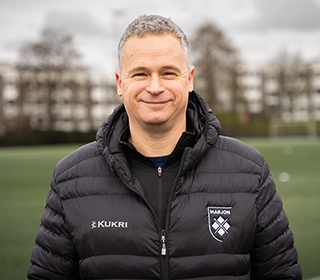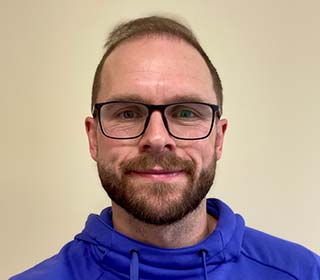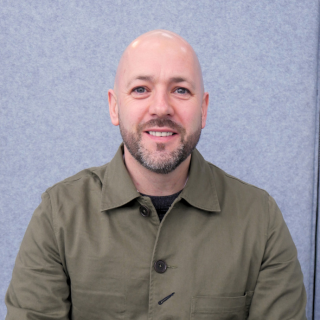
BA (Hons) Community Football Coaching
Turn your passion for football into a varied and exciting career. You'll learn about the football industry including coaching, player development, talent identification, inclusion, leadership and management, performance analysis, practical football development, and how football can be used for positive social change.

Entry requirements
Three A-levels: CCC - BBC
BTEC Level 3 National Extended Diploma - MMM - DMM
Access to HE Diplomas accepted with credits in line with the UCAS tariff point range
Or T level P (C+)
And GCSE English Language at grade 4 or grade C or above
Applicants with other qualifications and/or experience will be considered on an individual basis
UCAS points 96 - 112
UCAS code CFC1
UCAS institution code P63
Duration Three years full time or up to six years part time
Any questions?
Contact Tara Godber, our Applicant Support Coordinator, if you have any questions. Email: applicantsupport@marjon.ac.uk and Tara will get back to you.
Course Summary
The BA (Hons) Community Football Coaching at Marjon prepares you for a dynamic career in football and sport development. Designed with Plymouth Argyle Community Trust and the Devon FA, this CIMSPA-endorsed degree blends academic study with extensive applied learning and coaching experience.
From day one, you’ll explore how football can be used as a tool to improve lives, engaging with themes like inclusion, education, health, and community cohesion. You’ll develop core coaching knowledge, earn FA-accredited qualifications, and begin building your professional network through placements and partnerships with leading organisations.
In Year One, you'll build strong foundations in community coaching, player development, and performance analysis. You'll learn how to design inclusive coaching sessions, analyse team performance, and understand the wider structures and policies that shape community football in the UK.
In Year Two, you'll deepen your expertise through a placement module tailored to your interests, gaining real-world experience in clubs, community trusts, or schools. You’ll study how to plan and deliver events, coach female athletes, and use individual performance analysis to support player development. Optional modules let you explore areas like education, sport theory, or player care. This year is about refining your coaching and leadership, while building confidence in applied settings.
In Year Three, you’ll focus on leading and influencing practice. You’ll tackle complex issues in coaching and community development, including disability inclusion, volunteer support, and sociological influences on sport. You’ll complete an applied research project, and work closely with industry professionals to plan and evaluate sport programmes. This final year ensures you're ready to lead and deliver change in your chosen area of the football industry.
Throughout the course, you’ll be supported by FA Coach Developers and expert lecturers, all with real-world experience in community football. The programme includes the option of a Professional Practice Year between your second and third year. During this year, you’ll gain full-time experience with one of our trusted partners, including Plymouth Argyle Community Trust, Devon FA, and Challenger Sports, with the opportunity to coach in the United States. This immersive experience helps you apply your learning in practice, grow your professional network, and graduate with real-world confidence and industry-ready skills.
Whether you're looking to work in coaching, development, education, or project delivery, this degree will equip you with the tools to make a real difference in football and your community.
Why this course at Marjon?
Built with the industry, for the industry: Designed in collaboration with Plymouth Argyle Community Trust and the Devon FA, this course reflects the real needs of community football employers, giving you a clear pathway into the profession.
Earn while you learn: You’ll gain FA-accredited coaching qualifications and a CIMSPA-endorsed coaching award at no extra cost, adding real value to your CV before you even graduate.
Real-world experience from day one: Work on real football projects in schools, clubs, and communities. Our strong links with local and national partners mean you'll apply your learning in live environments, not just classrooms.
Optional professional practice year: Take the opportunity to spend a year working full-time in the industry, including the chance to coach football in the USA with Challenger Sports, or deepen your experience with partners like Argyle Community Trust and the Devon FA.
Develop as a leader, not just a coach: You’ll learn how to manage events, lead projects, support volunteers, and use football as a tool for social impact, preparing you for a variety of leadership roles in sport and education.
Expert teaching from FA Coach Developers: Learn from staff who are active in the game, including current FA Coach Developers, talent pathway coaches, and experienced practitioners in sport development and education.
Modules for this course
Course Snapshot
“ "This course is your launchpad into a career in football. We’ve built it with leading organisations to give you the skills, confidence, and connections to thrive, whether you're coaching on the pitch or leading projects that make a real difference in your community."”
1st Year
Starting Strong: Foundations for Coaching and University Success
Game Insights: Performance Analysis in Action
Building Skilful Movers
Sport, Society and Social Change
Inside the Sport Industry: Systems, Power and Policy
Coaching to Develop Players: From Practice to Matchday
2nd Year
Sport Event Design and Delivery
Data-Driven Player Development
Sport Coaching Theory & Practice
Sport and Education
Professional Practice and Industry Experience
Women in Sport: Coaching for Performance and Progression
Athlete Welfare and Wellbeing in Practice
3rd Year
Power, Identity and Coaching: A Sociological Lens
Coaching for All: Inclusion, Adaptation, and Equity
Managing Events: From Concept to Delivery
Pathways to Performance: Analysing Talent Development Systems
Insight to Impact: Applied Research in Sport
Leading Others: Mentoring in Sport and Physical Education
Tactical Insights and Matchday Performance
Coaching Children in Sport
Current students say...
William Allen
"Since I began my studies at Marjon, they have helped me secure positions in a variety of coaching domains, from internationally in the United States to professional football clubs in Devon, as well as pushed me outside of my comfort zone by having me lead sessions for inclusivity within the community. This has enhanced my confidence to be able succeed and reach my career aspirations of becoming an international football coach."
Abbie Burrows
“The links the lecturers have for trips out and guest speakers help so much and give us different ways to coach. It is great to hear the experience of people who are working in football. Prior to this I was a part time football coach at different clubs and I thought I was the perfect manager but this course has showed me that there is so much more to coaching. It helped me to become a better manager as I’ve learnt so much which is so useful to use in my own career development.”
Jake Taylor-Lewis
“My favourite part of the course is the practical sessions, the majority of which are student led. Being able to take concepts from lectures and apply them into sessions for my peers has helped me improve my coaching massively. Whether you are already coaching or have never tried it before, the friendly environment in the practical sessions is great for receiving feedback that can immediately be put into practice. And, being a football coaching course, we play a lot of football which is fun.”
This course is perfect if you’re curious about
Whether success at youth level should come before long-term development.
Why gender inequality still exists in the game, and how to challenge it.
How to design inclusive coaching sessions that work for everyone.
What it takes to manage a grassroots football club or community project.
How football can drive social change in communities.
How digital tools and performance data can shape player development.
“ We’re delighted to support students through placements, guest lectures and events in this rare opportunity to be involved at the heart of professional organisations and clubs such as ours, which significantly improves their CVs and career prospects.”
See where our graduates are now
Harry Powell
"University life helped me to understand the importance of planning and working to time constraints, being forward thinking and proactive, always looking for ways to improve, learn and planning ahead when under busy schedules. What I love most about the work in which I do now is the level of detail I am able to go into when preparing for fixtures. I am able to go into massive amounts of detail to help aid the thought process and preparation for our first team coaching staff"
Harry Powell is First Team Analyst at Plymouth Argyle Football Club
George Roberts
"Football brings some many positives to society and it’s extremely rewarding being able to contribute to the delivery and development of a professional football club academy which helps to provide fantastic experiences for young talented footballers. University life helped prepare me for a career in the football industry by developing my knowledge but also my communication, time management and organisation skills which are now so important to the work I carry out."
George Roberts is Head of Academy Operations at Plymouth Argyle Football Club
Alex Pratt
"My 3 years at Marjon gave me opportunities to network with external organisations in the sector, and gain experience through voluntary and part-time roles. I’m passionate about increasing opportunities for everyone to play football and being involved in the rapid growth of the Women & Girls game has been amazing, especially with the opportunity to play a role in delivering the legacy programme and activations from the successful Women’s Euros last year."
Alex is Football Development Officer (Women & Girls and Recreation) at Berks & Bucks FA
What might you become?
This course opens the door to a wide range of careers across football, sport development, and education, in the UK and internationally. Our graduates go on to become:
- Community Football Coaches working in schools, clubs, and foundations
- Football Development Officers for local authorities, County FAs, or clubs
- Education & Inclusion Leads using sport to promote social impact
- Project Managers leading sport-based programmes for health, education, or youth development
- Performance Analysts supporting player development through data and video
- Sport and PE Coordinators in schools or community settings
- Club Development Coordinators supporting grassroots sustainability and volunteer growth
You’ll also be well prepared for postgraduate study in teaching, coaching, or sport management, or to work abroad in roles such as coaching in the USA or delivering football in development contexts worldwide.
Partnerships

Argyle Community Trust
As the official charity for Plymouth Argyle Football Club, the Trust works to inspire, engage, and help people of all ages achieve their full potential through the power of football. It runs active and inclusive activities designed to have a positive impact on local communities across the South West.
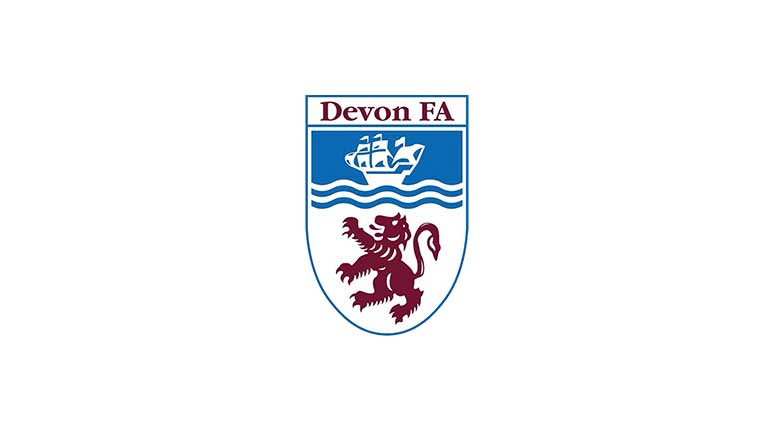
Devon FA
Devon FA develops and governs football at all levels, in line with the FA's National Game Strategy, and seeks to increase participation, improve the quality of football and widen access to football opportunities across Devon.

Chartered Institute for the Management of Sport and Physical Activity
CIMSPA certifies that this course meets the professional standards set by employers in the physical activity and fitness sector. CIMSPA's Coaching Assistant and Coach awards are included.
How you’ll be taught and assessed?
How will you be taught?
You’ll learn through a blend of interactive seminars, practical coaching sessions, real-world placements, workshops, and project-based learning. The course is designed to keep things applied and relevant, you won’t just learn about coaching, you’ll be doing it from day one.
You’ll work closely with expert lecturers, FA Coach Developers, and partner organisations to apply theory to practice. Whether it’s analysing match data, leading a community football event, or delivering inclusive sessions in schools, you’ll be immersed in authentic football environments.
Alongside scheduled sessions, you’ll also complete independent tasks, reflective work, and group projects, helping you to build confidence, critical thinking, and communication skills that employers value.
How will you be assessed?
You’ll be assessed through a variety of methods that reflect real-world practice in coaching and sport development. These include:
- Practical coaching assessments
- Project planning and delivery
- Reflective journals and portfolios
- Presentations and group tasks
- Essays and research reports
- Data analysis and performance reviews
There are no traditional exams. Instead, assessment is designed to help you apply your knowledge, build confidence, and demonstrate your skills in realistic, meaningful ways. You'll receive feedback that supports your development and prepares you for work in the football and sport industry.
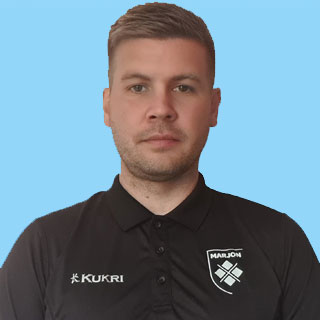
Lee is as a Senior Lecturer and experienced Coach Developer. He has a wealth of experience in coach education, delivering on the FA Introduction to Coaching Football, UEFA C, UEFA B and National GK Coaching Courses, and supporting high-performance coaches with UK Coaching. Lee has coached in a variety of grassroots and performance settings, including at Bristol City FC Academy, with the FA Women's Talent Programme, and in Disability Talent Hubs. Lee has also been a Non-Executive Director in Regional Governing Bodies and therefore has an excellent understanding of the UK sport sector.
Fees and funding
Fees UK students: £9,790 per annum
This fee covers your tuition and access to course-specific equipment and facilities, as well associated services including access to the library, study skills support, IT support, student support and wellbeing services and membership of the Student Union. There may be additional costs by course.
Additional costs:
- A DBS check
- Marjon sports kit
- Some students opt to fund additional external coach education.
Funding available for this course
Our Student Funding Advisors offer confidential and impartial advice about your funding options.
Student funding adviceLecturers

Lee is an experienced Sports Coaching lecturer who has worked in Higher and Further Education. Lee also works for the FA as a coach developer across their coach education programmes and a coach at the Women's High Performance Centre. Lee is a Director at the Somerset FA and the Chairperson of their Inclusion Advisory Group. Lee is a Talent Reporter for the FA's England Girls programme and an Associate Coach Developer for UK Coaching. Lee is also undertaking a Doctorate programme through Loughborough University aiming to reposition the role of Coach Developer towards Learning Designer.
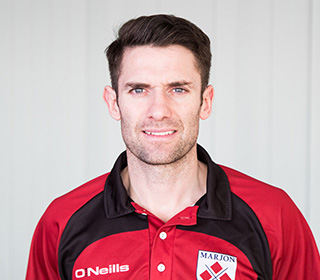
Aaron is a Senior Lecturer in Sport Coaching & Physical Education and is also the Programme Leader for BA (Hons) Sport Coaching. He teaches predominately across the Sport Coaching & Physical Education degree programmes focusing specifically on practice design, skill acquisition, performance analysis, participation coaching and performance coaching.
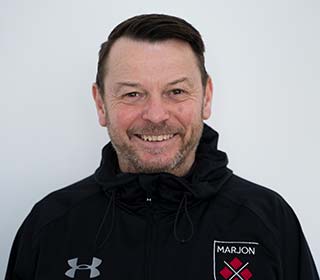
Chris has been involved in community football for over 20 years. He oversees the sport science support programme for Plymouth Argyle FC Youth Academy and the operational management for their Centre of Excellence. He helps students to gain volunteering and placement opportunities. He is a Coach Mentor for the FA and as part of the degree programme; students can apply to become part of the FA Young Coach Development Team to develop their theoretical understanding and coaching practice. His other interests include performance analysis, physiological testing and the development of football within the wider community.
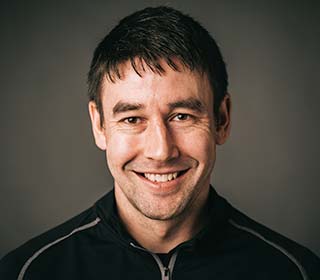
Ian is a Lecturer in Sport Coaching and PE, teaching across a range of topics including coach behaviour, coaching philosophy and the coaching process. With experience as an Academy football coach, he holds the UEFA 'B' Licence and FA Youth Award qualifications. Ian's research interests relate to coach identity, learning and behaviours. He completed his PhD, 'Who is a coach? Understanding coach subjectivities in professional youth football', under the supervision of Professor Christopher Cushion at Loughborough University. Ian previously enjoyed a successful career as a professional footballer, making over 250 first team appearances and representing England at Under 18 level.
More information
In addition to a rigorous academic programme, this course provides the opportunity to gain several industry-relevant coaching qualifications which enhance your coaching skills for the course and bolster your CV and employability. By the end of the programme you will have access to:
- FA Level 1 (including FA Emergency Aid and FA Safeguarding Children in Football)
- FA Level 2
- FA Futsal Level 1
- ISSA Street Soccer Level 1
- FA Coaching Disabled Footballers
- UEFA B
Awards will be matched to your level of experience and expertise.
You will also have the opportunity to put what you have learned into practice through formal partnerships developed by the University with local coaching centres. The University, and specifically this course, is recognised by the FA and British Universities and Colleges Sport (BUCS) as a ‘Young Coach Development Centre’ and ‘Football Hub’. You will be able to access our Coach Mentor programme supported by academics and community coaches and gain access to a range of CPD events.
You'll have the opportunity to study in the United States and we work closely with Camp America to give you the chance to work there during the summer.
More from our students
- The only impossible journey is one you never begin by Anthony Goss
- Level Up Football Coaching with Nathan Morgan
Working in partnership
Plymouth Argyle Community Trust was founded in 1992 and is a registered charity. The Trust’s social objectives are for the benefit of everyone in the local community, promoting inclusion, improving health and education through sport, and generally raising sport participation levels. They aim to provide the local community with opportunities to explore their full potential, improve their life chances, and better their future choices and aspirations through the power of football and sport. Their staff members deliver many sport, health, education and inclusion projects across Devon and Cornwall.
The Trust is involved in national initiatives with key partners such as the Football League Trust, Premier League Charitable Fund, Sport England, and other key national agencies. This exposes our football students to various national initiatives including Kicks, PL 4 Sport, National Citizen Service, and others. Giving students access to workshops, practical sessions, and planning enables them to utilise these skills and experiences to enhance their employability within the football sector.
There is a strong partnership between the football teaching team and Plymouth Argyle Community Trust. Together we ensure that students have excellent academic and applied real-world experience. The Trust provides opportunities for students to volunteer or engage in applied work-based learning and practical activities. Several members of the Trust team teach on the course, and the Head of the Trust, Mark Lovell, said: "Almost half our workforce has completed courses in football and sport development and coaching at Marjon which is proof a degree leads to a great job."
Find out more about studying BA (Hons) Football Development & Coaching at Marjon
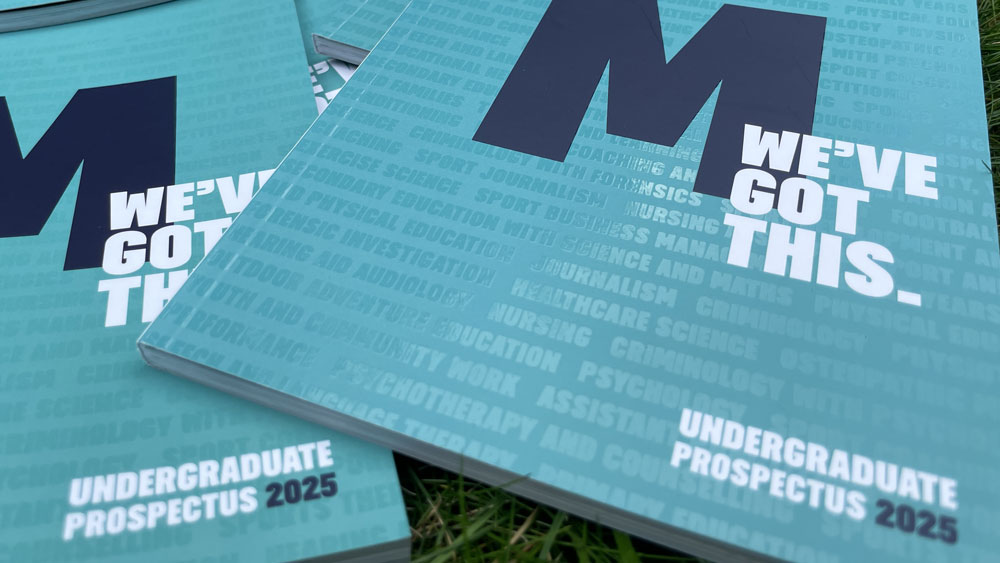
Discover Uni collects data about university courses in the UK. All universities publish Discover Uni data on their online course pages enabling you to compare similar courses at different universities.




